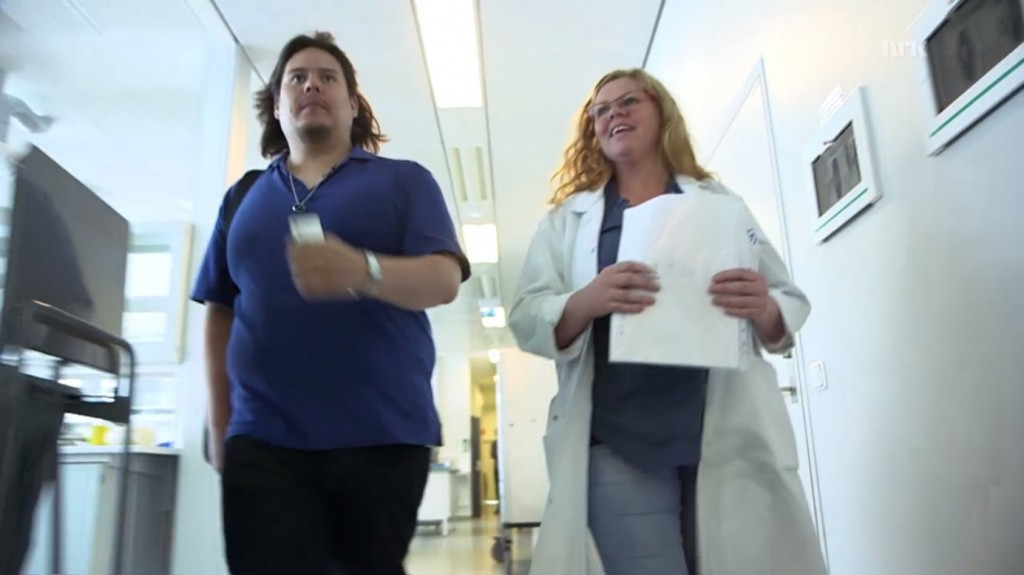Blogger: Siren Nymo,
PhD Candidate, Clinical Nutritionist
Once the body starts to lose weight, it will fight against weight reduction. By identifying a timeline over how compensatory mechanisms activates “ saving mode” we can be able to tell when and how the body starts to fight. This has never been done before, and is usefully for people struggling with weight regain.
Many times as a clinical nutritionist, I have discussed reasons for missing weight loss targets and experiencing weight regain. Patients are in despair of struggle with increased hunger feeling, and not being able to feel full after a meal.
In our study, we use an extreme way of dieting – very low calorie diet for 8 weeks, followed by 4 weeks of weight stabilization. Once a person is obese and loses weight, he/she will always struggle against the weight reduced state. But why? The reality is an activation of different compensatory mechanisms, both at the level of energy expenditure and energy intake. People feel hungrier and less full after a meal, even though their total energy expenditure is dramatically reduced. This makes progressive weight loss difficult and increases the risk of relapse.
The changes in subjective feelings of appetite are due to adaptations at the level of our appetite control system, with an increase in the levels of hormones that make us feel hungry and a reduction in the levels of hormones that make us feel full after a meal. When body size is reduced, not only the energy needed to maintain basic body functions is reduced, but also the energy needed to perform physical activity is also lower. This reduction in energy expenditure, both at rest and during exercise, seems to be due not only to the reduced body weight, but also to the fact that some individuals go into a “hibernation or saving-mode” after weight loss, is becoming more energy efficient.
… a reduced obese individual needs to fight against these adaptations for the rest of his life.
Unfortunately, the reduction in energy expenditure and the increased drive to eat do not seem to fade over time and even in the long-term, after partial weight regain, they seem to be operational. This means, in practice, that a reduced obese individual needs to fight against these adaptations for the rest of his/her life.
With a timeline when these compensatory mechanisms appear, we can help health professionals and patients to be more aware of when to put in some extra effort by knowing at what time points it can be necessary to exercise more or be more aware of eating habits to prevent weight regain.

